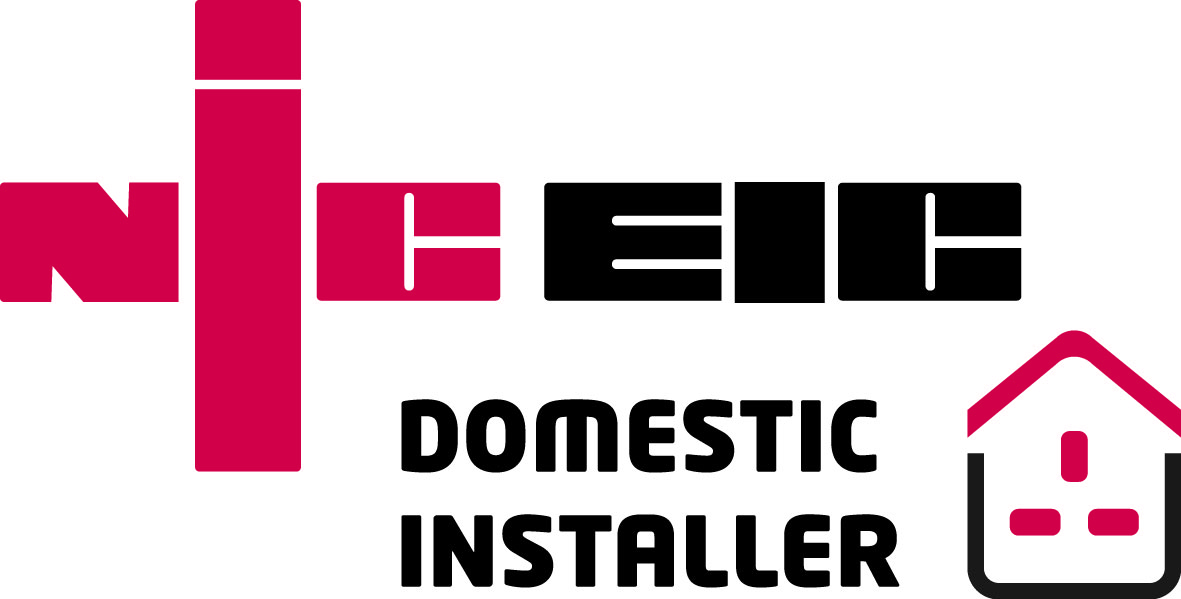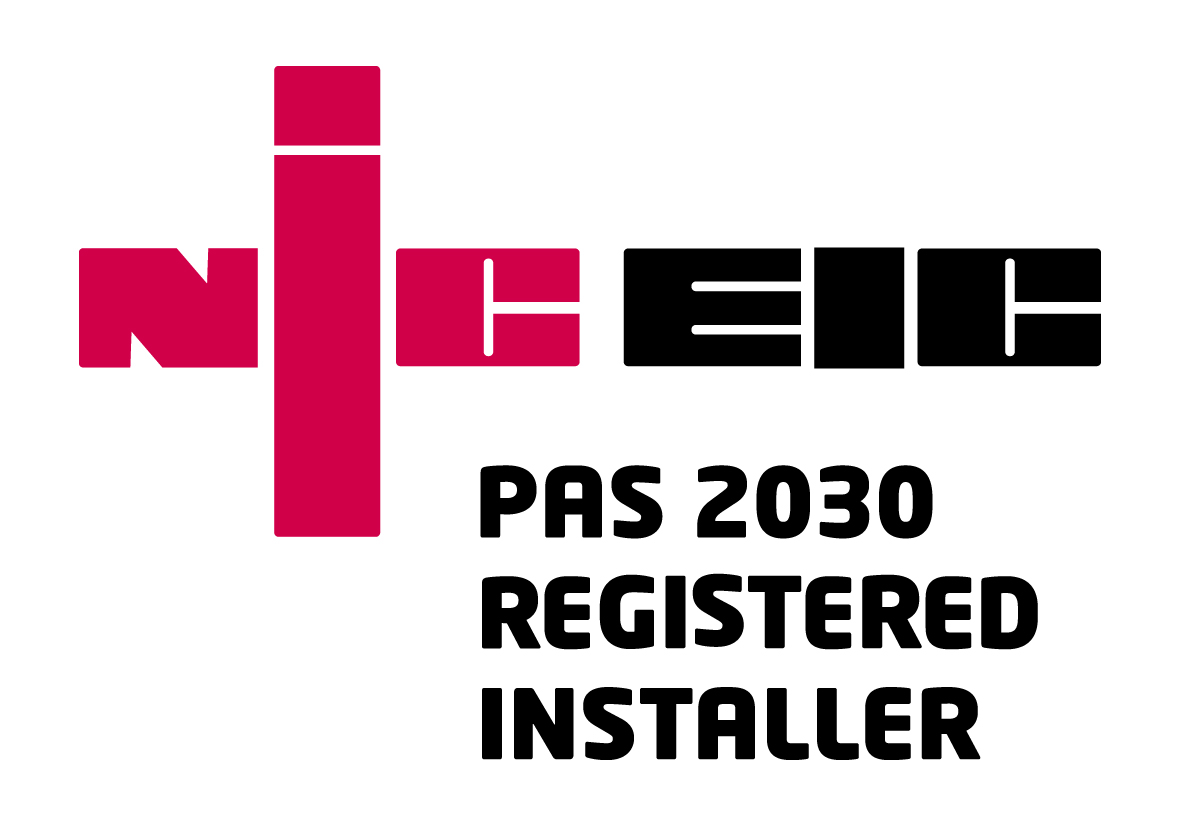Your assessment is a fundamental part of your business certification with NICEIC.
It allows your business to display the NICEIC brandmark with pride knowing that your business has demonstrated compliance with the scheme requirements, helping provide assurance to your customers.
It is your chance to show that your business:
- has the required systems, policies, procedures and insurances in place to support you and your customers; and
- carries out work that complies with the relevant national industry standards.
Your assessment also gives you an opportunity to ask your assessor any technical questions you might have.
Whether you are preparing your business for your application assessment or it’s your 30th NICEIC assessment, this page will help guide you on how to book and prepare for your NICEIC assessment, as well as provide some top tips, additional resources including webinars, and what to have ready to show your assessor.
Each scheme has its own specific assessment criteria and guidance. Please review the assessment guidance and checklist document for each scheme. The guidance provided on this page summarises the key points for electrotechnical schemes; such as the Approved Contractor and Domestic Installer Scheme.
Assessment guidance and checklists
Review our comprehensive guides to help you prepare for your business assessment.
About your assessment
The following information has an electrotechnical scheme focus. Please refer to the relevant assessment guidance and checklist from the list above for full details on all our schemes.
How do I book our NICEIC assessment?
For businesses already certified with NICEIC electrotechnical schemes, we’ll send you an email with details on how to book your assessment. To get the best selection of dates, and to avoid missing your certification deadline, we strongly recommend you book your assessment as soon as you get your booking communication from us. We will email you with guidance on how to book your assessment 12 weeks before your assessment due date.
Booking an application assessment
Once your online application, insurance and qualifications documents have been validated and payment made we will contact you to agree a suitable assessment date.
Who will my assessment be with?
Your assessment will be with a NICEIC assessor. If your business is certified for an electrotechnical scheme such as the Domestic Installer Scheme or Approved Contractor Scheme, your NICEIC assessor will need to meet two key people: your qualified supervisor (QS) and your principal duty holder (PDH). In some businesses the same person can fulfil the roles of QS and PDH.
Full details are provided in the assessment guidance and checklist documents listed above.
Top tips for preparing for your assessment
The following information has an electrotechnical scheme focus. Please refer to the relevant assessment guidance and checklist from the list above for full details on all our schemes.
We recommend spending some time preparing for your NICEIC assessment. The NICEIC assessment consists of a review of your management systems (often referred to as the office audit) and assessment of electrical work on site which the business is responsible for. Sites made available for assessment must be for electrical work covering all scopes of work undertaken by the business within the NICEIC certification. Please refer to Types of Work for Assessment document which provides guidance.
Here are our top 10 tips and resources to help you prepare for the review of management systems. Our assessor will usually meet you (the PDH and QS) at your contracting office for the opening meeting, whether this is in your home or a separate business address for this part of the assessment.
Policies, procedures, insurances, publications and equipment
- Check required policies, procedures, insurances, publications and equipment, are made accessible for your assessor on the day of your assessment. We’ll usually review these during the management systems review (office audit).
Health and safety policy statement is a requirement
- A health and safety policy statement is a requirement for all businesses certified on the electrotechnical schemes regardless of the size of your business.
Useful NICEIC guide: Health & Safety Policy Guidance Document
Have you notified us of any changes in details such as change of qualified supervisor?
- Have you notified us of any changes in details such as change of qualified supervisor? Where a qualified supervisor leaves a business, you must advise us without delay and, within 30 days of the change, where a declaration on a form prescribed by us to confirm that all electrical work is, and will continue to be, under the supervision of a named competent person. A replacement qualified supervisor, accepted by us, must be employed in that capacity within 120 days of the former qualified supervisor leaving a business.
Have you reviewed your last NICEIC assessment report?
- Have you reviewed your last NICEIC assessment report? Check all actions including any non-conformities have been addressed. Whilst some non-conformances do not require evidence to be sent into us within 30-days, this doesn't mean corrective action shouldn’t be taken.
Have your proof of adequate insurance for works carried out by your business to hand to show the assessor.
- Have your proof of adequate insurance for works carried out by your business to hand to show the assessor. Check:
a. The expiry date and that the insurance will still be in-date on the day of the assessment, and
b. includes public liability insurance of at least £2million, and
c. covers all scopes of electrical work carried out by the business, within scope of your NICEIC certification, and
d. includes professional indemnity insurance of at least £250k (only applicable if your business is certified to undertake EICRs).
If you don’t have compliant public liability insurance, we can’t carry out the site assessments. If it’s not in place on the day of the assessment, we will need to undertake an additional assessment to assess work on site which will incur additional chargeable fees. NICEIC insurance services can offer advice for businesses already certified with NICEIC to ensure you’ve got the right cover to meet our scheme requirements.
Technical reference documents
- Technical reference documents – these must be up to date and readily available for access. Depending on which schemes your business is certified on, these may include the following. Full details are provided in the scheme assessment guides listed above.
a. Current edition of BS 7671 (including amendments)
b. HS(R)25 (EAWR 1989).
c. GS38 otherwise known as HSE’s guidance for Electrical test equipment for use on low voltage electrical systems.
d. Approved documents / Technical Standards (where appropriate)
Note: If your business also undertakes the installation of electrical vehicle charging equipment (EVCE) installation, solar photovoltaic (PV) systems installation and/or electrical energy storage systems (EESS) installation, then the relevant and current versions of the IET Code of Practices should also be made available. Furthermore, for solar photovoltaic (PV) systems installation and electrical energy storage systems (EESS) installation, the relevant Microgeneration Installation Standards should be made available.
Test instruments and leads
- Test instruments and leads – all NICEIC-certified businesses are required to have an adequate number of serviceable test instruments and test leads appropriate to the range, scale, geographical spread and scope(s) of electrotechnical work undertaken.
NICEIC-certified businesses are also required to have records demonstrating the consistency and on-going accuracy of test instruments held or hired for the certification of, or for reporting on the condition of electrotechnical work. You therefore need an effective system that allows you to confirm the continuing accuracy and consistency of these instruments. There are several ways you can demonstrate this, we don’t prescribe any specific system. But you need to show us you’ve got a system to regularly check the instrument to ensure it is still reading accurately and calibrated.
The Electrical Safety First Best Practice Guide 7 (free to download here) offers further practical advice and guidance on the accuracy and consistency of test instruments for electrical installations. Whichever method/s you choose, you need to document and keep records of the results. You can’t just tick a box to say you’ve done the check; you need to record the values you have measured.
Useful NICEIC template: Test Instrument Accuracy Record - EXAMPLE
Useful NICEIC guide: Safety through Accuracy of Test Instruments
Continuing professional development (CPD) records
- Continuing professional development (CPD) records – maintaining CPD records for you and all ‘employed persons’ is a requirement of NICEIC scheme rules. Please make sure you have records for all ‘employed persons’, this includes temporary, agency and subcontracted workers, including self-employed people and sole traders. CPD can include anything related to your job function, and it can include a variety of ‘formal’ and less formal sources from training courses and CPD-accredited webinars to reading articles or health and safety training. You don’t need to record everything, but we do want to see evidence of ongoing learning and development. For all your team, keep a log of each activity, the key learnings, and how long it took. Find out about the CPD requirements for you and your business, the benefits, and CPD resources available to you in the NICEIC CPD hub.
Useful NICEIC template: Record of CPD (TEMPLATE)
Note: we don’t specify how you record CPD and supervision, your business may already use its own system, platform, documentation to record this. When thinking about recording supervision, please refer to our Guide to Roles and Responsibilities of a Qualified Supervisor, for guidance on how to determine adequate supervision.
Building Regulation Compliance
- Building Regulation Compliance – for businesses certified on the Domestic Installer Scheme or Competent Persons Scheme ensure effective systems are in place for notifying any work carried out falling within scope of the Approved Documents which requires Building Regulation Compliance. For the Domestic Installer Scheme, this will refer to notifying electrical work falling within scope of Approved Document P.
Records must be maintained
- Records must be maintained for a minimum of 6 years or otherwise contractually required, inclusive, but not limited to; specifications, certificates, competence records and complaints. If your business has received any complaints over the previous six years, we will need to review these records, along with details of actions taken to resolve the complaints.
Useful NICEIC template: Complaints Record
Preparing for the site assessment
The following information has an electrotechnical scheme focus. Please refer to the relevant assessment guidance and checklist from the list above for full details on all our schemes.
You’ve booked your assessment, and all your paperwork is in order. The next step is to select examples of your work for the assessor to review.
For a suitable site selection overview, please refer to Types of Work for Assessment document.
Please ensure you have:
- sufficient examples of electrical installation work completed with appropriate certification from the previous 12 months; and
- checked access to sites on the required day is possible.
Resources
The following information has an electrotechnical scheme focus. Please refer to the relevant assessment guidance and checklist from the list above for full details on all our schemes.
These additional resources will help your business prepare for your assessment. Please contact our customer experience team if there is anything further we can help with.
NICEIC The Wire webinars
We recommend listening back to these.
- Your NICEIC assessment: common mistakes and how to avoid them
- Myth busters: NICEIC edition
- The role of a qualified supervisor
- The NICEIC electrotechnical assessment
- Electrotechnical assessment: the importance of supervision and training requirements for your business
Access the full on-demand catalogue of The Wire webinars The Wire on-demand
Publications
Building Regulations Approved Documents and/or Technical Standards relevant to the work undertaken by the business.
- Approved Documents - Approved Documents - Planning Portal
- Building regulations - Building standards - gov.scot
- Building and planning | Topic | GOV.WALES
- Regulations – Building Control NI
- Part 12: electrical safety
- The Electricity at Work Regulations 1989 (HSR25)
- GS38 (as amended)
- Microgeneration Installation Standards Library
Downloads
NICEIC Electrical Scheme Guide
Guide to roles and responsibilities of a qualified supervisor
Acceptable QS Qualifications – Approved Contractor Scheme
Acceptable QS Qualifications – Domestic Installer Scheme
NICEIC Electrical Scheme assessment guidance and checklist
Electrical Safety First Best Practice Guides
Connections
You might also find it useful to re-read these articles as you prepare for your business assessment. Digital copies of Connections can be accessed anytime via the customer portal.
Connection articles are only available for NICEIC registered business, applicants will have access to these after passing the initial assessment.
Connections (Autumn 2025 – issue 235) article: Path to Success (pages 20-21)
Connections (Summer 2025 – issue 234) article: Prepare For Your MCS Assessment (pages 16-17)
Connections (Winter 2024 2025 – issue 232) article: The Latest on CPD (pages 18-19)
Connections (Spring 2023, issue 225) article: Too Good To Miss (page 17)
Connections (Summer 2023, issue 226) article: It’s All In The Paperwork (page 15)
Connections (Autumn 2023 – issue 227) article: Preparing For The Site Visit (page 17)
Connections (Winter 2023_2024 – issue 228) article: Getting BAFE SP203-1 Ready (page 14)
Connections (Spring 2024 – issue 229) article: What Went Wrong? (page 23)
Connections (Summer 2024 – issue 230) article: Doing CPD is Key; So Is Documenting It (pages 18-19)
Connections (Autumn 2024 - issue 231. article: The Three Degrees of Supervision (pages 20 – 22)
Professional Electrician & Installer (May 2020) – A NICE(IC) Day For An Assessment (pages 19-20)
It depends on your scheme and your scope of work and geographical spread. Your assessment email will provide more detail.
It is important that the representative samples of work are within a local area to allow the Assessor time to travel to all sites and back to your contracting office within the allocated time, if this isn't possible then an additional chargeable assessment will be required.
The Assessor will start the assessment at your contracting office address. The Assessor will then review your office systems, documents and equipment to ensure it is appropriate to the range and scale of electrical work your business carries out.
The Principal Duty Holder (PDH) will need to be present for the opening and closing meetings of the assessment.
And the Qualified Supervisor(s) (QS) will be required to be present throughout the assessment and accompany The Assessor to the sites selected for assessment.
Your assessment email will also provide more detail. You can also find more information in our Electrical Scheme Guide.
Your assessment should provide sufficient examples of installation work completed in the previous 12 months by the business. The work should be representative of the day-to-day activities of the business and comply with BS 7671 and relevant Building Regulations.
More detail can be found in the Type of Work for Assessment document.







